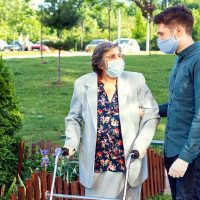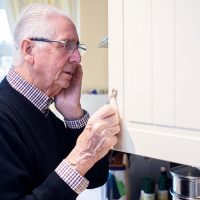May 20, 2020 by Dean Bellefeuille

You might not recognize her by name, however you’ve probably come across her story. Joy Milne has a remarkably specialized talent: detecting Parkinson’s disease through her sense of smell. Her gift came to light when she sensed what she explains as an “overpowering sort of nasty yeast smell” in her husband of ten years. Subsequently identifying other changes in her husband, such as personality and mood changes, he ultimately went to the doctor for medical assistance, and received a diagnosis of Parkinson’s.
Subsequently, upon joining a Parkinson’s support group meeting, that exact same odor permeated the room – even though reportedly only Joy was able to notice it. As a matter of fact, she was even able to detect varied degrees of the scent – some whose scent was weak, while for other people, it was more powerful. With both her own and her husband’s medical backgrounds (she a nurse and he a physician), this revelation was unmistakably important and called for additional action.
Her story led her to help Tilo Kunath, a Parkinson’s disease researcher at the University of Edinburgh, with the aim of creating an instrument to provide earlier detection – and in the long run, treatment – of Parkinson’s.
Although first skeptical of the possibility of Parkinson’s being identified through scent, he was open to additional investigation into the way we diagnosis Parkinson’s through smell after finding out about the success dogs were having in picking up on the odor of cancer in patients. He then designed an approach to assess her talents, by giving her a random selection of t-shirts – half which had been worn by a patient clinically identified as having Parkinson’s, and 50% by those without the disease – and, her accuracy rate was remarkable. As a matter of fact, she missed the mark on only one of the shirts, worn by someone without Parkinson’s, but who actually was later identified as having the condition as well.
Kunath says, “Imagine a society where you could detect such a devastating condition before it’s causing problems and then prevent the problems from even occurring.” Dr. Thomas Hummel of the Technical University of Dresden’s Smell & Taste Clinic, concluded that while the idea is interesting, there are still a number of questions to first address.
Parkinson’s disease, along with a host of other chronic health issues, can be more successfully managed with the help of a home care provider like At Home Independent Living. Reach out to us at (315) 579-HOME (4663) to learn more about our elder care in Syracuse, NY and the surrounding area.










